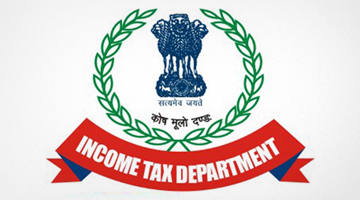|
Over The Counter Supply - IGST or SGST?
Place of Supply of goods under GST- More than clarification required
In GST, ‘the location of the supplier’ and ‘the place of supply’ together determine whether a supply is intra-state or inter-state. The location of supplier is not as problematic as is the 'place of supply'. However, in case of supply of services elaborate provisions have already been made and in case of last illustration of hair-cut (in the article), the place of supply is Delhi (where the service is actually performed – Section 12(4) of IGST Act). However, major dispute is with regard to the place of supply of goods as the relevant section 10 of the IGST Act is not that elaborate. It is felt that mere clarification by way of circular without changing the provisions of Section 10 of the IGST Act may not work in case of goods as discussed below:
2. Section 7 of CGST Act provides the scope of supply and it includes “sale” which is the most common form of supply of goods. The word “sale” is not defined under GST, however, Section (3) of the Sale of Goods Act, 1930 stipulates that “Where under a contract of sale the property in the goods is transferred from the seller to the buyer, the contract is called a sale”. So now question arises as to when the “property in goods is transferred?”
3. The proposed circular, referred to in the article, says: the expression "movement of goods terminates" would mean the place where the movement of goods terminates when the goods reach the place of registration of the recipient or to the address that has been declared in the tax invoice as the case may be. The cases where “the supply involves movement of goods” are covered under Section 10(1)(a) – the place of supply of such goods shall be the location of the goods at the time at which the movement of goods terminates for delivery to the recipient. However, he cases where “the supply does not involve movement of goods” are covered under Section 10(1)(c) – the place of supply shall be the location of such goods at the time of the delivery to the recipient. Now consider the following situations:
(1) Suppose a person from Mohali (Punjab) purchases an AUDI car at Chandigarh. The Showroom hands over the keys of the car to the owner and he drives away. Has he received the car or he will receive it when he drives that car to Mohali? A speeding truck coming from hind side crashes into AUDI just a kilometer from the showroom (in Chandigarh), with God's grace the driver is saved unhurt but car is total damage. Now whether the showroom who sold the car is in picture as supply was to be completed at Mohali only? NO. Matter is between the insurance company and the owner of the car who was to receive(?) the car at Mohali as explained in the proposed circular cited in the article. It is felt that such supply, though of a car, is covered under Section 10(1)(c) as no movement was involved for delivery to the recipient thus supply did not involve movement as the sale had already occurred in the show-room where the property in the car had been transferred to the buyer. So the tax leviable was CGST +UTGST + Comp. Cess and not IGST+ Comp. Cess.
(2) A Trader from Chandigarh purchases goods for his business over the counter at Delhi, the supplier charges SGST+CGST, as the delivery to the recipient on the spot. How will such recipient claim ITC? He cannot claim ITC of the above taxes in Chandigarh. As he can avail ITC of Integrated Goods & Services Tax only in case of supply from another state.Should there be two categories of buyers – registered and unregistered?
(3) A person coming from Panchkula Haryana) to Mohali (Punjab) via Chandigarh purchases some eatables at Panchkula (Haryana) he gives his address of Mohali, the supplier charges IGST (as suggested) but the persons stops for some work at Chandigarh which takes some time and he consumes the eatables at Chandigarh. Should there some exceptions to general rule such as eatables or consumable goods?
4. In view of the above, the Phrase "involves movement of goods, whether by the supplier or the recipient or any other person" needs to be explained. Moreover, the law has to be made very clear without any ambiguity. Therefore, mere issue of clarification may not serve the purpose until-unless legal provisions regarding place of supply of goods as provided under Section 10 of the IGST Act are suitably amended so as to leave least scope for ambiguity.
Baljit Singh Khara
(The view expressed here are strictly personal)
NACIN NACIN
29/01/2020
 |
















